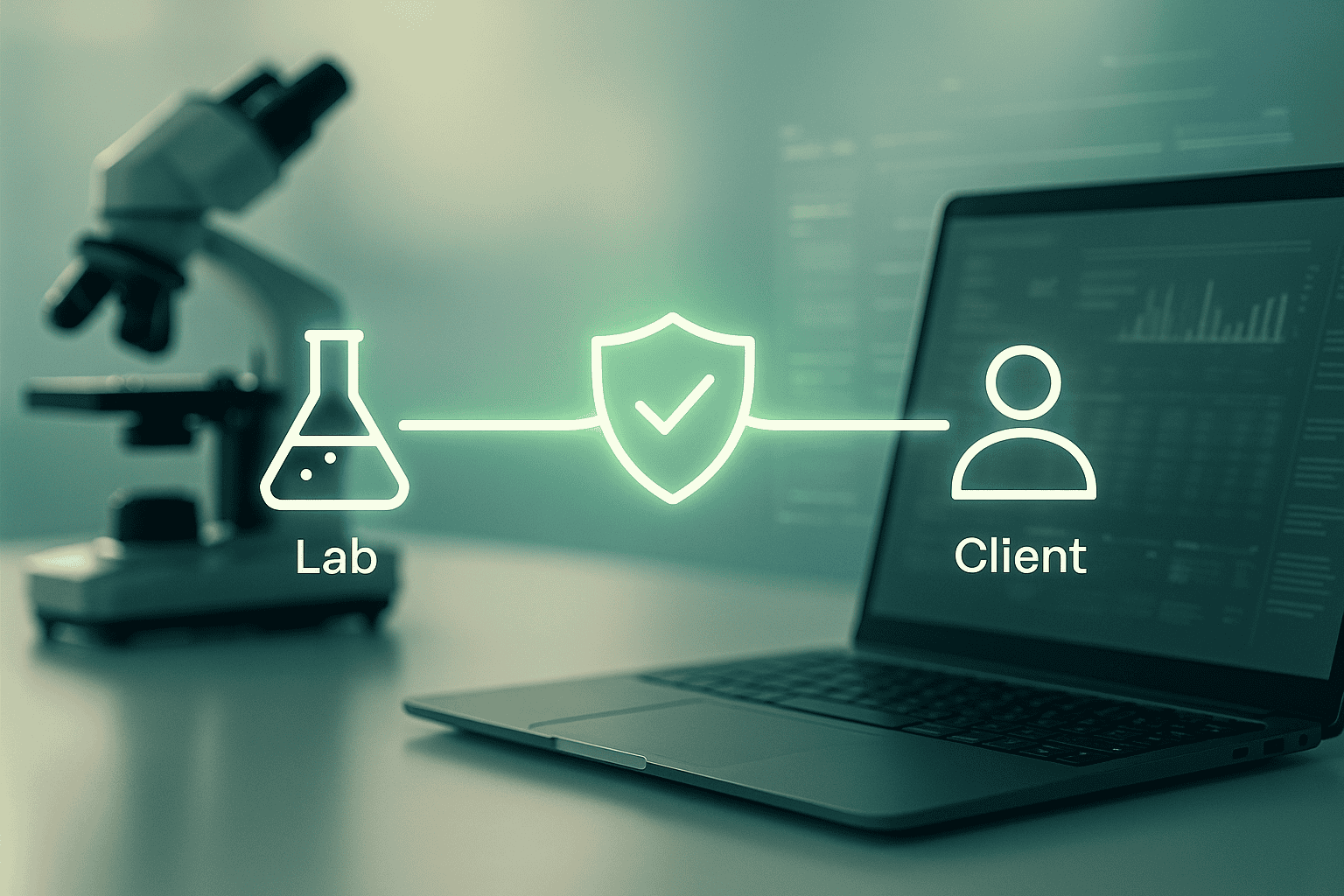Data Security & Compliance: The importance of Audit Trails
Unlocking Laboratory Excellence: The Crucial Role of Audit Trails
Audit trails are an essential component of modern laboratory operations, establishing data integrity, accountability, and compliance with regulatory standards. Labs often struggle with maintaining data security and meeting regulatory requirements, facing serious consequences when they fall short. For example, a recent FDA Warning Letter to a contract testing laboratory highlights the critical importance of robust data management and integrity. The inspection revealed significant violations of Current Good Manufacturing Practice (CGMP) regulations related to laboratory data integrity and documentation practices. The FDA concluded that “failure to comply with CGMP may affect the quality, safety, and efficacy” of the drugs tested in the laboratory. These consequences can affect not only your lab, but clients, patients, and consumers. By using robust audit trails, labs can track data changes and actions, making it easier to stay compliant and secure. This article explores the importance of audit trails, their role in laboratory management, and how they contribute to operational excellence.
What are Audit Trails?
Audit trails are like a digital footprint for labs. They track every change made to data, who made it, and when it happened. This helps labs maintain data accuracy, security, and compliance with regulations. By keeping a clear record of all actions, audit trails make it easier to spot and fix issues, ensuring everything runs smoothly and stays up to standard.
The Role of Audit Trails in Data Security
Ensuring Data Integrity
Audit trails are critical in maintaining accurate, detailed, and unaltered records. This level of detail helps in detecting and preventing data tampering. For instance, version control in a LIMS ensures that data cannot be manipulated when samples are input, maintaining a complete history of changes and revisions.
This ability is crucial for compliance personnel and lab managers who need to verify that all data remains intact and reliable. Additionally, lab personnel want to keep the LIMS system running efficiently and securely to meet regulatory requirements for data security and audit trails, protect sensitive customer data, and maintain the lab's reputation as a trusted provider of high-quality testing services.
Accountability and Traceability
Audit trails provide a clear record of user actions and changes, enhancing accountability by tracking who did what and when. This traceability is essential in lab operations, where maintaining a detailed history of data interactions is crucial for both internal processes and external audits.
The importance of traceability in lab operations cannot be overstated. Audit trails help lab managers and compliance personnel monitor activities within the lab, ensuring that all actions are accounted for and that any anomalies can be investigated promptly. For example, in a scenario where a data entry error is identified, audit trails allow managers to trace back to the origin of the error, understand the context, and implement corrective measures.
Enhancing Regulatory Compliance with Audit Trails
Meeting Regulatory Requirements
Audit trails are indispensable for meeting various regulatory requirements, such as FDA 21 CFR Part 11, ISO standards, and other industry-specific regulations. These regulations mandate the use of audit trails to verify data integrity and traceability. The recent FDA Warning Letter underscores the importance of audit trails in meeting these regulatory standards to avoid severe consequences.
For example, a regulated pharmaceutical manufacturer can apply audit trails to document every step in the testing process, ensuring compliance with stringent regulatory standards. Similarly, a contract testing lab can use audit trails to improve accuracy and accountability, providing clients with reliable and trustworthy results.
Supporting Internal and External Audits
Audit trails provide detailed documentation for audit purposes, simplifying the audit process with comprehensive and accessible records. During regulatory inspections, having robust audit trails can significantly ease the burden on lab personnel and ensure that all necessary documentation is readily available.
The benefits of having robust audit trails during regulatory inspections are numerous. They provide a clear and concise record of all laboratory activities, making it easier for auditors to verify compliance. Labs that have successfully navigated audits with the help of audit trails often report a smoother audit process and fewer compliance issues.
Data Security & Compliance
In addition to audit trails, several other key features contribute to data security and compliance in a LIMS. These include:
- Authentication (Multi-factor): User authentication to ensure only authorized users are granted access, enhancing data security.
- User Management: Efficient management of user roles and permissions.
- Web-Based Accessibility: Access from any location with an internet connection, allowing users to work remotely or across different devices.
- Data Publishing: Save data in a draft state until reviewed by Quality personnel and then publish once ready for use.
- Data Normalization: Standardizes formatting of data to ensure consistency and uniformity across all attributes.
- Data Encryption: Encrypts sensitive data at rest and in transit to protect against unauthorized access or interception.
- Electronic Signatures: Unambiguously links electronic records with the responsible user's electronic signature.
- Test Method Management: Efficiently manages test methods and protocols.
For a comprehensive list of these features and their benefits, check our Data, Access & Security Page.
Audit Trails: The Key to a Secure and Compliant Lab
Audit trails are like a lab's digital safety net, ensuring data integrity and regulatory compliance. They track every change, maintaining transparency and enhancing security. The FDA's recent warning letter highlights the severe consequences of poor data management and underscores the importance of robust audit trails. Along with audit trails, features like version control, data encryption, and electronic signatures are essential for keeping your lab secure and compliant.
To learn more about how our LIMS can enhance your lab's data security and compliance, explore our Data, Access & Security module.

Want more insights like this?
Subscribe to The LabHQ Monthly for regulatory updates, lab efficiency tips, and product news – delivered straight to your inbox.
Monthly emails. Unsubscribe anytime.



